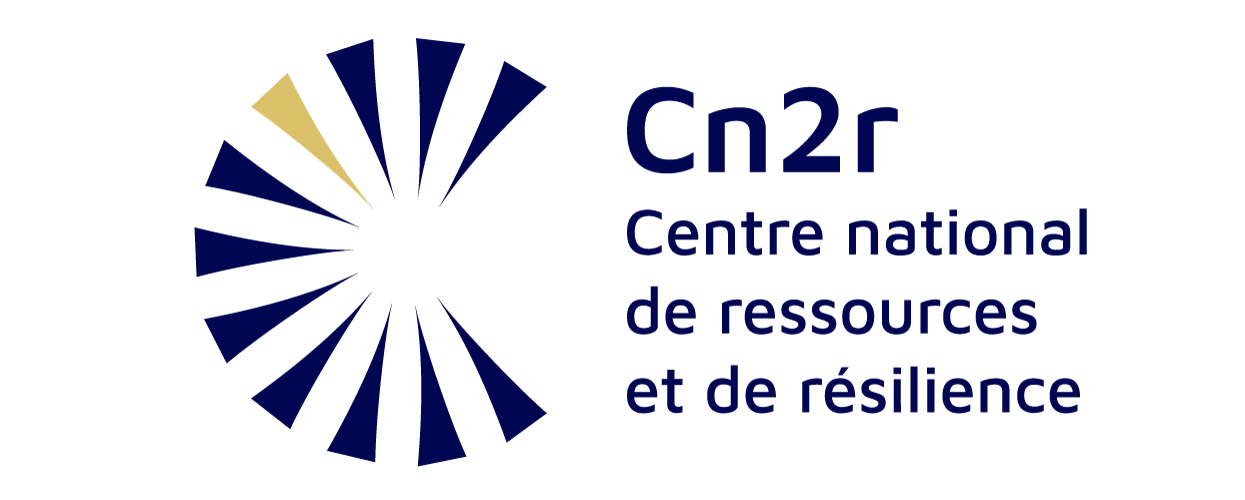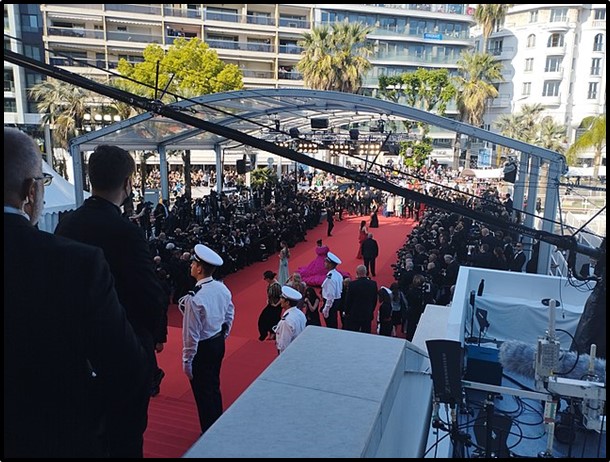To coincide with the Cannes Film Festival, Cn2r's editorial team has put together its own official selection of 10 films that deal in one way or another with post-traumatic stress disorder (PTSD) and psychotrauma.
1. Le Souffle du Canon
Documentary - Nicolas Mingasson - 2020
Le souffle du canon is a documentary that plunges us into the Army's Center for the Wounded. Located in the heart of the Mercantour park, the center takes in former soldiers, both combatants and soldiers from the rear, who are suffering from PTSD (post-traumatic stress disorder). From the very first minutes, we are reminded of the reality of this invisible, yet very real, psychological injury. In front of Nicolas Mingasson's camera, they bear raw, painful witness to their inability to banish images of fear, their nights of nightmares, their violent impulses, their hallucinations, their hypervigilance... In other words, they recount and share their destruction with each other. Using a range of tools, the soldiers embark on a long and essential journey of reconstruction, gradually regaining a taste for life and questioning their future.
2. The night of the 12th
Film - Dominik Moll - 2022
Clara, 21, was burned alive one night as she left a friend's house. A team from the Grenoble criminal investigation department searches in vain for her killer among her former acquaintances. Inspired by an unsolved real-life crime, the film recounts the banality and tragedy of a feminicide. This sober film retraces the investigation into the feminicide of Clara, a happy and fulfilled young girl. It deals with the difficulty of announcing a death in a legal context, and the complicated mourning that can affect the victim's loved ones. He also evokes the vicarious trauma of certain investigators, haunted to the point of obsession and reliving the search for the murderer. He also precisely exposes the uncomplicated and ordinary sexism of the protagonists' male gaze, which allows the appropriation, right up to the murder of the young girl. The scene of the feminicide, of the victim's charred remains, but also a listening scene with high levels of verbal violence, may be difficult for a sensitive audience. Sober and uncluttered, the film has great narrative and reflective power; the characters, mostly male, are credible. A powerful film that leaves no one indifferent.
3. Amanda
Film - Mikhaël Hers - 2018
David, 24, lives in Paris thanks to several odd jobs. He is very close to his older sister, Sandrine, who is raising her 7-year-old daughter Amanda alone. One summer evening, Sandrine is killed in a terrorist attack. David suddenly finds himself caring for his niece. Adult and child, bereaved at the same time, learn to live together and to live without Sandrine. With great delicacy and sensitivity, this film describes the mourning process for a child, but also for a close adult. It evokes the difficult rebalancing of daily life and relationships between the bereaved and the victims of the attack. The scene in which David tells Amanda of his mother's death is an apt one. Friends who were present during the attack and who were injured also experience signs of psychotrauma, such as avoidance or hypervigilance. Fenvac is mentioned, as is the importance of psychological follow-up. The story is credible, never maudlin, always modest and fair. However, a sexual scene makes it unsuitable for viewing with children and young teenagers. A luminous film, without pathos but with emotions on a difficult subject, succeeds in the tour de force of ending with appeasement and hope. The only drawback of this otherwise remarkable film is its focus on Paris and a wealthy milieu, which detracts from its universal appeal.
4. The Keepers
Series - Ryan White - 2017
This documentary series takes up the unsolved murder of a nun who taught in an American Catholic school in the 1960s. Former students take over the investigation years later. They believe the nun was killed because she suspected the school priest of sexual abuse. Their investigation shatters the traumatic amnesia of some, and gives voice to others. The well-crafted documentary series unravels the system of grooming and control set up by the priest and his accomplices, who use blackmail and abuse of authority. The testimonies of the former pupils, some of whom are confronted with reliving memories and nightmares, are poignant and illustrate the consequences of a traumatic event, even decades later, on the lives of the victims. Their determination to regain control of their stories and that of the young nun is striking. The complacency of the local authorities is also pointed out, as they quickly put an end to the investigation and do not pursue it any further. Despite the passage of time, the pugnacity of the nun's former pupils in bringing the case to light, and the great solidarity between the victims, bring justice to the murdered young woman and recovery to many.
5. Les Éblouis
Film - Sarah Suco - 2019
Camille is a schoolgirl from a Catholic family. Her parents are gradually being drawn into a sect. The cult leader, known as the "shepherd", takes Camille away from her teenage life: she has to give up the circus, change clothes... He also makes Christine, the mother of the family, believe that she has been the victim of incest by her father, in order to break the link with her parents. Camille refuses criticism from outsiders and protects her parents as she watches them become radicalized. The teenager goes to them for help when she sees her brother being sexually abused by a parishioner, but is accused of lying. To save her siblings and break free from the psychological hold, she goes to the police and reveals everything. The story, inspired by a true story, deals aptly with the conflict of loyalties a child can face.
6. Spotlight
Film - Tom McCarthy - 2015
A team of investigative reporters from the Boston Globe, dubbed "Spotlight", uncovered a scandal involving pedophile priests covered up by the Catholic Church in the Boston area. The film retraces their investigation and gives a broad account of the victims' experiences years later. The film echoes the work done in France by CIASE, the Independent Commission on Sexual Abuse in the Church. During the film's investigation, one victim, who has since founded a support association, speaks of 13 priests in Boston. But a former priest who studied the issue for many years puts the number closer to 90, or 6% of the city's Catholic priests. This breathtakingly effective film helps us understand the psychotraumatic consequences of sexual assault on victims, then children, by people in authority. It explains how the Catholic hierarchy imposes silence on the families concerned. Spotlight is a fascinating film that shows how criminal behavior can be supported by a system. The script is particularly empathetic towards the victims.
7. Thanks be to God
Film - François Ozon - 2018
During a conversation, Alexandre, a practicing Catholic and father, recalls the sexual abuse he suffered as a child at the hands of a priest. He then discovers that the pedophile, covered up by his hierarchy, is still in contact with minors. Confronted with the Church's denial, he filed a complaint. The investigation led to other victims speaking out. Inspired by the Bernard Preynat and Philippe Barbarin cases, the film recounts the legal battle of victims sexually abused by the chaplain of their scout troop. With a great deal of modesty and seriousness, the story underlines the recognition of the victims' voices, their desire for justice and reparation. After the abuse, the life trajectories of the victims are as different as the traumatic marks. In addition to the bad faith of the Catholic hierarchy, the film highlights the upheaval in family relationships and friendships following the release of the victims' word. A remarkable film, "Grâce à Dieu" rigorously denounces the Church's complacency in the sexual abuse committed by these clerics. It also highlights the painful journey of victims who, whether children or adults, are not heard.
8. Tickling
Film - Andréa Bescond and Eric Metayer - 2018
Odette is a little girl who loves to draw and, above all, to dance. When she was just 10, a family friend asked her to play "tickle". For several years, Odette finds herself trapped and sexually abused by this man. Admitted to the Paris Conservatoire, she became estranged from her parents during her adolescence. Alcohol, drugs... her future as a dancer is compromised, without her ever making the connection with her childhood traumas. One day, Odette decides to get help, and makes an appointment with a psychologist. The young woman takes her psychologist through the key episodes of her life. Her consultations are up and down, and she is unable to build a stable relationship. Faced with a wall, the psychologist convinces Odette to reveal the sexual violence to her parents, to free herself from the weight of this secret. Odette's father takes her word for it, and finds himself wracked with guilt, while her mother questions her words and wonders what others will think. The film reflects society's position on sexual violence against minors: if you can't see it, it doesn't exist. The young woman decides to go to trial, and the culprit is sentenced to seven years in prison. Odette ends her psychological treatment with a feeling of lightness, as if she had dropped off a piece of luggage to continue moving forward and building her life.
9. Mysterious skin
Film - Gregg Araki - 2004
Brian, aged 8, wakes up in a cellar with a nosebleed. From then on, the little boy somatizes, suffers from enuresis and desperately tries to remember what happened. Neil is on the same baseball team as Brian. He grows up with no reference points except his sports coach, who turns both boys' lives upside down. This very hard-hitting film, with explicit scenes of sexual aggression and not recommended for children under 16, powerfully exposes the consequences of trauma for children and teenagers: amnesia, dissociation, risky behavior, repetition of trauma, etc. The two children follow different trajectories. The two children follow different, painful trajectories, a sign that each path is unique. Speech, which liberates both of them, finally removes them from the omnipresent imprint of the aggressor, whose chilling grooming strategies are highly realistic. This film provides a better understanding of trauma and the complex trauma of children and teenagers. It is, however, intended for an informed audience. Remarkably realistic and empathetic to the victims, it vividly portrays the vulnerability of children and their coping strategies during and after abuse. Watching it, however, requires us to be attentive to our own signs of reactivation in the face of a traumatic event.
10. Until custody
Film - Xavier Legrand - 2017
A couple is in the process of divorcing. Their eldest daughter will soon be of age. The youngest, aged 11, refuses to go to his father's house, to the point of somatizing every time he sees him. Supported by her lawyer, the mother asks for sole custody of the boy. The family court refused. The father now has carte blanche to continue tyrannizing his family through joint custody. The film demonstrates with force and tension the paradox that justice often considers that a violent spouse can at the same time be a good parent. The child, used as an instrument of vengeance and retaliation by the father, pays the price: hypervigilance, anxiety, sleep disorders. Tension mounts as the abusive spouse's parental rights are validated, and he extends them to his ex-wife. This film brutally depicts what coercive control is, its traumatic consequences on children, how it continues despite the separation of the spouses, and how this violence can lead to feminicide. Some scenes may provoke reliving for victims of domestic violence. A powerful, relentless film that paints a chilling portrait of coercive control and domestic violence that continues even after separation.



